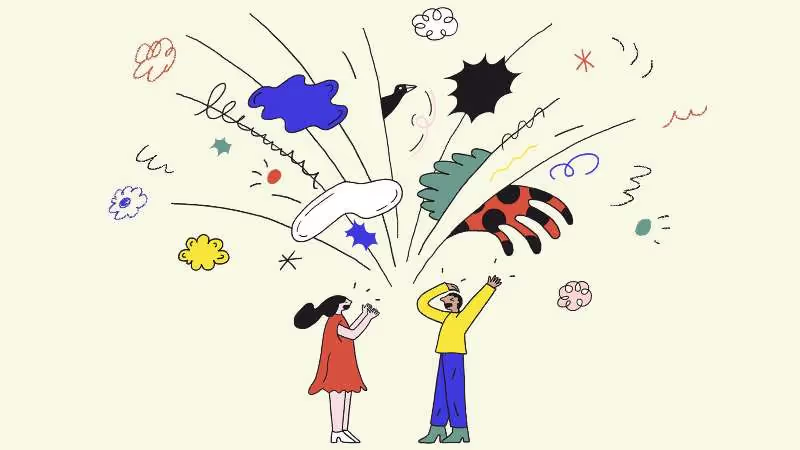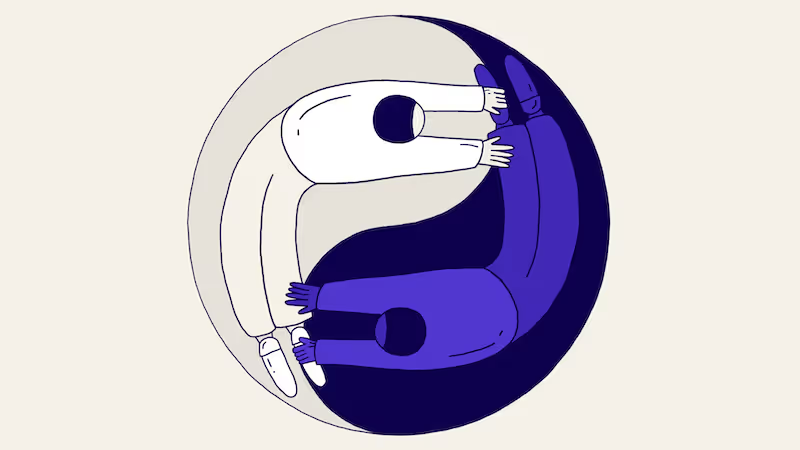Shall We Begin?
“Would you rather be right or would you rather be married?”
I don’t often use clichés in couples therapy, but this one is a go-to. It is often the most direct question I can ask a feuding couple who is stuck in a standoff. A few years ago, after I welcomed a young couple into my office, they sat down on the couch a foot apart and immediately looked in opposite directions. I waited to see who would speak first. She looked over at him and raised her eyebrows. He gestured with his hand, wordlessly conveying “no, you start, honey.” And so she began.
“His parents hate me.”
“They don’t hate you. They don’t know you. They live on the other side of the world. They’ve never met you.”
“What am I supposed to do? They don’t want to get to know me.”
“I’ve told you, you should call them, write to them.”
“We don’t speak the same language.”
“We can arrange a trip to go see them.”
“You know we can’t take off work for that long.”
It went on like this for a while: her stating her case, him butting in, her shutting him down. And then, I fell into the trap, too. “What if you used a translation app?” Soon came a deluge of reasons from her as to why that wouldn’t work. “I see,” I said. “You ask him what do I do? He gives you an option and, no matter what that option is, you come up with a reason why it is not possible. And I also see that you are getting frustrated he has not yet been able to solve this problem. I am curious: Do you want a solution or sympathy? Both are valid. Do you want help or do you want to be right? Less valid. You seem to want help but when he offers it, you are quick to reject it. So, what is he missing?”
Discomfort rippled across the room. It was silent and awkward and then, out of nowhere, she laughed. “This is so stupid,” she said. Was she talking about the therapy? His frustration? My advice? “I have no idea why I do that.” She turned to her partner. “I’m sorry.”
I invited him to suggest another solution and her to try responding with curiosity. He offered to translate between her and his parents. She opened her mouth and laughed again. “It’s hard to not immediately go to the negative. All of his suggestions give me anxiety.”
“Is he giving you anxiety or are you experiencing the discomfort of recognizing your own pattern?” She went to speak, stopped herself, and smiled. “I was about to do it again.”
These days, we work really hard to eliminate discomfort in every area of our lives. I have found, however, that discomfort is a remarkably effective tool. When we heighten the discomfort we feel around how stuck we are, we urgently start to reconnect with our sense of agency. “I don’t want to feel this way; what can I do to change this?” That agency becomes a pipeline to relationship accountability. “I didn’t realize I was doing that; I’m sorry I kept shutting you down.”
Not every couple’s session goes this way, of course, and we spent much of the session on the aspects of their dynamic he needed to own. He had been offering surface-level solutions instead of listening to what she was experiencing underneath. He had been discounting the very real challenges that can arise with cross-cultural family ties. In one hour, two clear patterns had emerged: her reluctance to put herself in a situation in which she could be rejected and the back and forth between her expressions of distress and his failed attempts at redress. Eventually they both went silent. And then he said “you keep saying that my parents don’t like you…but, by avoiding meeting them at all, you’re turning your fear into our reality.”
It was the most uncomfortable moment of the whole session but clarity was finally seeping in. Gears were clicking forward. She went to respond and stopped herself. Once she could see her automatic no creeping up, she couldn’t help but laugh and neither could we. Discomfort is a great tool, but so is laughter. Both bring perspective.
Let’s Turn the Lens on You
- What are some of the common ruts you get into with your loved ones?
- Identify one element of that rut for which you are perennially responsible.
- What kind of triggers make you defensive in this situation?
- What do you think might happen if you were to own your part?
- What’s one quality you could bring to the dynamic that could change it for the better?
More From Esther
“The 3 Types of Relationship Fights You Keep Having” / an article
The deeper issues that drive escalation are rarely about the content of our fights—dirty dishes, too much time on our phone, politics, the kids—they’re about the needs, vulnerabilities, and biases that get triggered over and over.
“The Myth of Unconditional Love in Romantic Relationships” / an article
It might actually be a necessity to allow ourselves to really, really not like the person we love sometimes. Perhaps the highest form of love isn’t unconditional. Maybe it’s closer to Terry Real’s description of self-esteem: our ability to see ourselves as flawed and still hold ourselves in high regard. Can we do that for our relationships, too?
“Stuck in a Relationship Standoff? Here’s How to Get Out” / a free workshop
In this free workshop, Esther explains how to break the rhythm of escalation and examine our own rigidity.
Conversation Starters
A compendium of highly recommended sources of inspiration and information
I’m Reading:
- “Social: Why Our Brains Are Wired to Connect,” a book by Matthew D. Lieberman
- “Deep Secrets: Boys’ Friendships and the Crisis of Connection,” a book by Niobe Way
- “Can A.I. Treat Mental Illness,” a recent article by By Dhruv Khullar (The New Yorker)
- “Feeling Unsatisfied? Blame Romantic Consumerism,” my conversation with Nayeema Raza (The Cut)
- “Glow in the F*cking Dark,” a new book by Tara Schuster
I’m Listening to:
- “Dan Savage on Polyamory, Chosen Family and Better Sex” (The Ezra Klein Show)
- “Happiness 2.0: The Reset Button” (Hidden Brain)
I’m Watching:
- “Tár,” a new film by Todd Field
- “Close,” a film by Lukas Dhont
- “I’m Your Man,” a film by Maria Schrader






.svg)





